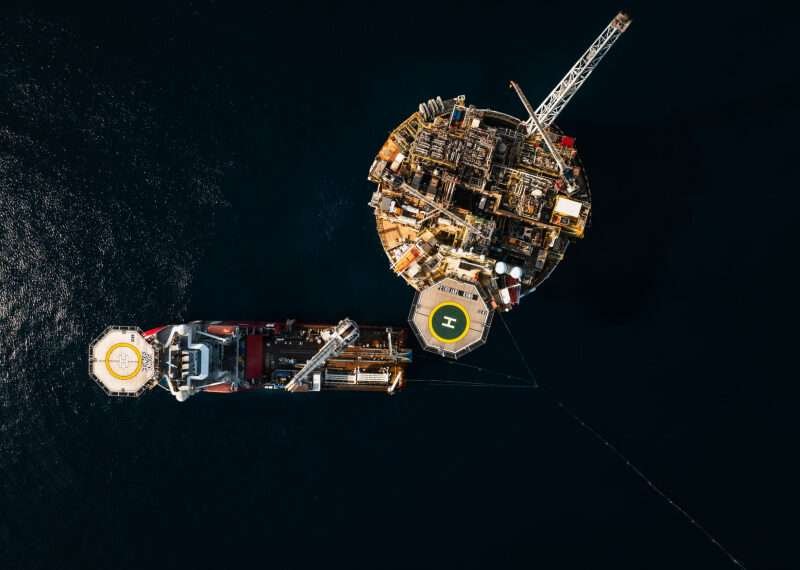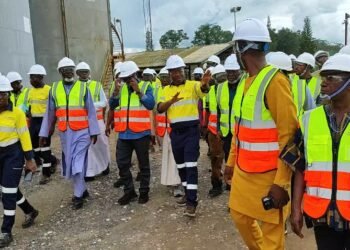Energy supermajor Eni has reached a significant milestone with the successful kickoff of Phase 2 of its flagship Baleine field, located offshore Ivory Coast.
Touted as the largest hydrocarbon discovery in the country’s history, the project is also Africa’s first net-zero emission upstream development in terms of Scope 1 and Scope 2 emissions.
This accomplishment, achieved just two years after the Final Investment Decision (FID) and 18 months following the startup of Phase 1, showcases Eni’s operational efficiency and technological prowess.
The Baleine field represents a cornerstone of Ivory Coast’s burgeoning energy sector, with potential to redefine the nation’s role in West Africa’s oil and gas market.
African Energy Chamber (AEC) Executive Chairman NJ Ayuk praised the project, noting its alignment with the country’s goals to reduce energy poverty, enhance local content, and foster economic development.
“Ivory Coast’s strong policies have laid the foundation for oil companies to drive large-scale projects, with the Baleine field serving as a prime example of what is possible when innovation meets efficient governance.”
Phase 2 of the Baleine project brings significant enhancements to the field’s production capacity. Eni has deployed the Floating Production Storage and Offloading (FPSO) vessel Petrojarl Knong alongside the Floating Storage and Offloading (FSO) vessel Yamoussoukro.
Together, these vessels will process, store, and facilitate the export of hydrocarbons. The deployment of these advanced technologies will enable production at the field to scale up to 60,000 barrels of oil per day (bpd) and 70 million cubic feet of associated gas.
This increase in production marks a critical milestone for the Ivory Coast, providing significant contributions to domestic energy needs while bolstering export revenues.
The associated gas production is particularly important for Ivory Coast’s local energy security, as it supports electricity generation and reduces reliance on imported fuels.
Eni’s ambitious vision for the Baleine field does not stop at Phase 2. The company is already studying plans for Phase 3, which aims to further ramp up production to 150,000 bpd and 200 million cubic feet of associated gas.
This phase, expected to consolidate Ivory Coast’s position as a regional energy hub, will significantly enhance the country’s standing in the West African oil and gas market.
In addition to boosting production, Eni’s focus on sustainability through low-carbon development highlights the company’s commitment to net-zero targets.
This emphasis aligns with global energy transition goals while maintaining the economic benefits of oil and gas development for host nations like Ivory Coast.
Solid Policies and Strong Partnerships Drive Growth

Ivory Coast’s emergence as a powerhouse in the West African energy sector is underpinned by a robust regulatory framework, investor-friendly fiscal terms, and innovative public-private partnerships.
With substantial hydrocarbon reserves and policies aimed at attracting global energy companies, the country has successfully drawn investments from supermajors like Eni, TotalEnergies, and others.
“The country is not just a key player in West Africa’s energy sector; it is a model for what the future of African oil and gas development should look like,” said Ayuk, emphasizing the importance of sound governance and progressive policies in fostering long-term industry growth.
The African Energy Chamber commended Eni and its partners, including the state-owned Petroci Holding, for their dedication to executing the project efficiently.
These partnerships demonstrate the potential for collaborative efforts between private companies and national entities to drive significant economic and energy-related outcomes.
Beyond the Baleine field, Eni continues to uncover new opportunities in Ivory Coast’s offshore basins.
In March 2024, the company announced a major discovery in Block CI-205, known as the Calao field. Estimated to hold up to 1.5 billion barrels of oil, Calao is set to become another transformative project for the nation.
Production at Calao is expected to commence by 2026, with the development projected to create approximately 8,000 jobs. The field will generate significant revenues for the Ivorian government and further strengthen the country’s energy security and economic growth.
Ivory Coast’s success with the Baleine field serves as a blueprint for other African nations seeking to capitalize on their hydrocarbon resources while addressing energy poverty and sustainability concerns.
Ivory Coast is set to enjoy a period of sustained economic growth and energy security, paving the way for its emergence as a leader in Africa’s oil and gas industry.
Eni’s efforts and the Ivorian government’s progressive policies demonstrate the power of innovation, collaboration, and efficient governance in transforming natural resources into long-term prosperity.
READ ALSO: Mozambique’s Election Crisis























